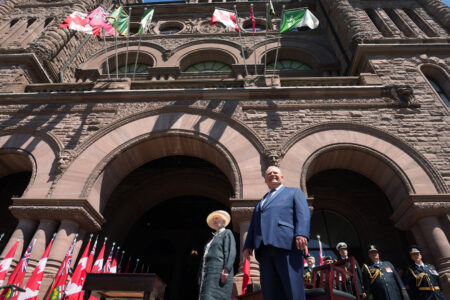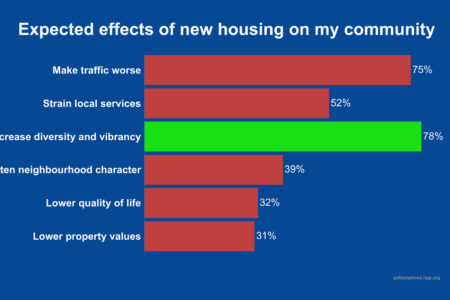
These are troubled times for democracy. The proliferation of semi-authoritarian states in the global South, the rise of right-wing populism in Europe and the United States, and the drawn-out conflicts in countries around the world threaten global stability and confidence in democratic processes and institutions. Weakened democracy and global political instability seriously endanger Canada’s foreign policy, its security and its domestic prosperity. There has never been a more vital time for Canada to support democracy and human rights in the world.
Of the many foreign policy tools at Canada’s disposal, supporting democracy abroad is one of the least costly and most effective contributions the country can make to resisting these forces, upholding global values and protecting national security. Supporting democracy abroad also ultimately protects our democracy at home.
Much thinking has already taken place around Canada’s possible role in democracy promotion. In 2005, Thomas Axworthy, Leslie Campbell and David Donovan published a paper with the IRPP on the idea of a “Democracy Canada Institute.” In 2009, a government-appointed panel that included Axworthy and Campbell delivered a report on the idea of creating a democracy promotion agency. The Harper government gave it serious consideration, before eventually setting the idea aside.
Canada is still uniquely placed to address the challenges associated with promoting democracy around the world.
Democracy promotion faces a gap: Challenges to democracy have become more complex, while the 25-year-old international practice of democracy promotion is experiencing a plateau of innovation and impact. The US, which has been a leader in this field, has undergone a shift in foreign policy and faces its own domestic issues around democracy. Meanwhile, there is a growing need around the world for help with supporting democratic institutions. A fresh Canadian contribution could help fill the current vacuum.
Democracy promotion requires technical expertise: Canadian experience with various models of inclusive governance and Canada’s record in electoral administration are deeply respected around the world. Canadian elections have a unique history of inclusiveness, because they are run by an elections system that reduces barriers to access and proactively takes responsibility for registering, informing and engaging voters. Highly valued by international organizations, Canadian expertise in this field is unique.
Democracy promotion requires experience and introspection: Canadian successes and struggles with multiculturalism, federalism, Indigenous rights and other minority rights, as well as Canada’s involvement with diasporas and international networks like the Francophonie and the Commonwealth, have positioned Canada to engage constructively on the world’s most pressing issues. Learning from past successes, as well as from more difficult experiences in countries such as Afghanistan and Haiti and in domestic Indigenous affairs, Canadians understand that democracy cannot be dissociated from other aspects of development, such as economic growth, equality, security, health and education. This deep understanding makes it possible for Canada to come to the table as an experienced global partner that recognizes and demonstrates the need to learn and improve alongside the states it supports.
Democracy promotion and Canada’s support of inclusive governance abroad should seek to achieve three objectives:
- Maximize the strengths of existing organizations active in priority areas.
- Fill institutional implementation gaps to meet priority goals.
- Advocate on the international stage for specific elements of inclusive governance.
Inclusive governance refers to the inclusion of diverse and representative voices from any society or population, particularly those most commonly excluded: people living in poverty, women, Indigenous populations, people living with handicaps, youth, ethnic and religious minorities. Supporting inclusive governance also involves building the skills and channels to include diverse ideological thoughts and beliefs in political life through constructive multi-partisan politics.
To achieve these goals, the Canadian government should create a dedicated, autonomous or semiautonomous organization that assembles expertise, experience and lessons learned under one roof and applies them intelligently to strategic objectives. Its mandate would be to coordinate, implement and advocate for the promotion of inclusive governance abroad.
The success of work to promote inclusive governance will depend on several elements: clear objectives; a rights-based mandate; the fostering of diversity; responsive, research-based, innovation-driven programs; a multi-sectoral analysis of challenges to democracy; and a financially stable long-term approach.
Inclusivity should be built into the design of programs and seen in their outcomes, with an emphasis on local leadership and accountability. In choosing where to focus its efforts, the organization should both involve historically marginalized groups and work constructively with opposing groups in divided societies. Countries should be targeted for assistance according to such considerations as regime type, historical/strategic ties to Canada, and local needs. We should also consider whether Canada can help in areas where we have specific expertise – such as with federal systems, parliamentary strengthening, electoral administration, women’s participation, Indigenous rights, multiculturalism and inclusive multipartisanship.
Supporting democracy in the world is a low-cost, high-impact investment in Canadian growth and values. Inclusive democratic governance — and the peace and well-being it facilitates — generates healthier societies, prosperous trading partners and a more secure world. Canada has a unique role to play in realizing this objective. The time has never been more critical for Canada to step forward as a leader in defending democratic values in the world.
This article is based on the author’s independent research as well as on insights shared during a workshop convened by the author in collaboration with the Pierre Elliott Trudeau Foundation and the University of Ottawa’s Centre for International Policy Studies (CIPS) in June 2016, entitled “Canada’s Role in Democracy Promotion.” A full list of participating speakers is available in the workshop report. The author wishes to recognize the contributions of these experts and expresses her gratitude to those that offered their time and expertise.
Photo: Shutterstock.com
Do you have something to say about the article you just read? Be part of the Policy Options discussion, and send in your own submission. Here is a link on how to do it. | Souhaitez-vous réagir à cet article ? Joignez-vous aux débats d’Options politiques et soumettez-nous votre texte en suivant ces directives.







